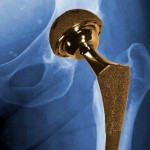
A report in U.S. News and World Report about the panel quotes an FDA spokeswoman as saying: “During the panel meeting, FDA will discuss failure rates and modes for these devices, as well as any local and systemic complications that could result from metal debris and metal ion levels in the bloodstream from the device.”
Issues the panel will discuss on June 27 and 28 include the all-metal devices’ tendency to shed toxic metal debris, which gets into the bloodstream and soft tissues of patients.
The FDA spokeswoman said the panel will also discuss the relative risks for specific patient groups, and recommendations for follow-up care after they’ve received the implants.
Manufacturers have already been obliged to take some models of all-metal implants off the market because of those problems. In 2008, manufacturer Zimmer recalled the Durom Acetabular Component because instructions were not clear.
And in 2010, Johnson & Johnson subsidiary DePuy Orthopaedics Inc. recalled a model because of its high early failure rate. Internal Johnson & Johnson documents have since come to light revealing that the company actively marketed the implants despite being aware of that high failure rate.
According to U.S. News and World Report, almost 17,000 problems with all-metal hip implants have been reported to the FDA, including more than 12,000 last year alone. Those problems have prompted many medical professionals in the United States and Europe to call for a comprehensive ban on the devices.
If you’ve received an all-metal hip implant, you should consult with a doctor if you have any ongoing symptoms or health concerns. If you have significant injuries, you should also consult with a DePuy hip lawyer familiar with the case to discuss your legal rights.
